Proportion=Relationship
When your eyes happen to fall again on the mugs you drew during our meeting, do you notice a difference in how you relate to them now? Did giving your attention to them shift your sense of intimacy with the beingness, the particularity, the realness of the things you drew?
As you look and draw, keep asking yourself questions of relativity: how long is this part in relation to that one, how much of this whole shape is taken up by that feature and so on.
You may catch yourself making aspects that interest you more prominent than they actually are, or squishing areas that don't seem important to you, without meaning to. There is no objectivity without subjectivity.
Searching for accuracy tends to be a humbling exercise, in my experience. Trying too hard to draw exactly may produce a tight, mechanical quality--there's life in the search, even if you never get it anywhere near 'right'.
Are you willing to not-know? Are you willing to estimate, make a mess, recognize where you're off and look again? Airplane navigational systems are off-course and correcting for it 99% of the time. Take a flight in your sketch book, giving attention to journey rather than destination.
As you look and draw, keep asking yourself questions of relativity: how long is this part in relation to that one, how much of this whole shape is taken up by that feature and so on.
You may catch yourself making aspects that interest you more prominent than they actually are, or squishing areas that don't seem important to you, without meaning to. There is no objectivity without subjectivity.
Searching for accuracy tends to be a humbling exercise, in my experience. Trying too hard to draw exactly may produce a tight, mechanical quality--there's life in the search, even if you never get it anywhere near 'right'.
Are you willing to not-know? Are you willing to estimate, make a mess, recognize where you're off and look again? Airplane navigational systems are off-course and correcting for it 99% of the time. Take a flight in your sketch book, giving attention to journey rather than destination.
Accuracy
If you'd like tools to map out proportions more exactly, here's a tutorial of a classic art school lesson: https://www.youtube.com/watch?v=pTVuDcwIF3M (The elements of the still life they used have all been painted a flat grey to lessen distractions of tone and local color).
Pausing at the beginning of a drawing to take notes on proportions and spacial relationships can offer a satisfying sense of orientation, freeing you to explore what you're seeing without wrangling sometimes frustrating puzzles of distortion.
Pausing at the beginning of a drawing to take notes on proportions and spacial relationships can offer a satisfying sense of orientation, freeing you to explore what you're seeing without wrangling sometimes frustrating puzzles of distortion.
Comparison
If you find yourself frustrated or disappointed in your drawing, check in with your expectations. Were you (maybe subconsciously) comparing your work to an imaginary ideal, or to the skills of 'famous' artists? Did you identify with the notion that a more pleasing-to-you result would make you better than how you now rank yourself?
Contemplate the role of this kind of comparison in your experience of other areas of life. Remember times when you've realized an unconditional regard for yourself, innocent of attachment to outcome. How might you give yourself more breathing room to explore and create from where you are rather than measuring yourself against an image of expertise or achievement? Even if that mental habit of comparison is robust, could you take it less seriously?
Here is an article on the principle of Innocence you might find relevant to this: http://www.stinkwanink.com/2015/06/innocence.html
Contemplate the role of this kind of comparison in your experience of other areas of life. Remember times when you've realized an unconditional regard for yourself, innocent of attachment to outcome. How might you give yourself more breathing room to explore and create from where you are rather than measuring yourself against an image of expertise or achievement? Even if that mental habit of comparison is robust, could you take it less seriously?
Here is an article on the principle of Innocence you might find relevant to this: http://www.stinkwanink.com/2015/06/innocence.html
Studying Art
As an art major at a fancy university, I had some teachers who acted dismissive and snobby, as if we should all have been born knowing how to do what we didn't know yet. The competitive culture of measuring achievement was deeply embedded there.
But I've always remembered a pointer from the painter Gretna Campbell as I was struggling with a still life. She said, "See that orange? Just love it." I couldn't get the orange to look round just then, but yes, I could learn to love it more. I can still see it glow in my mind's eye 45 years later.
But I've always remembered a pointer from the painter Gretna Campbell as I was struggling with a still life. She said, "See that orange? Just love it." I couldn't get the orange to look round just then, but yes, I could learn to love it more. I can still see it glow in my mind's eye 45 years later.
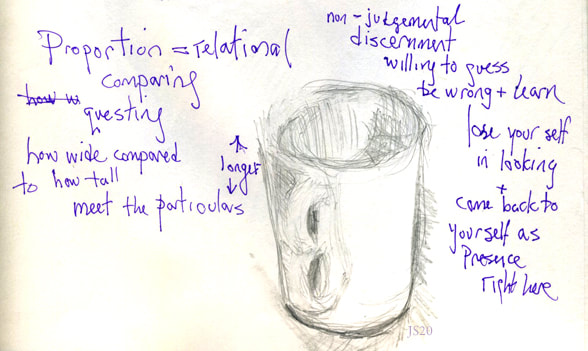
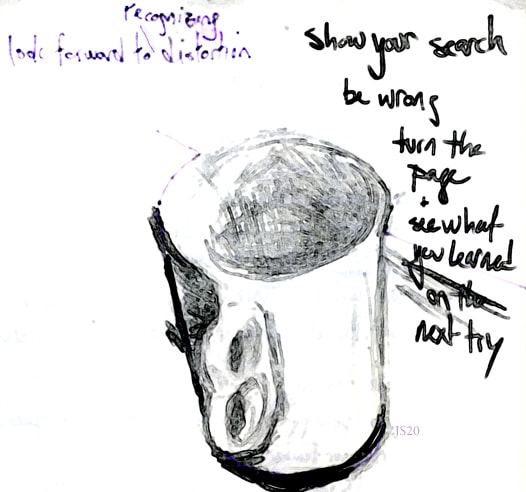
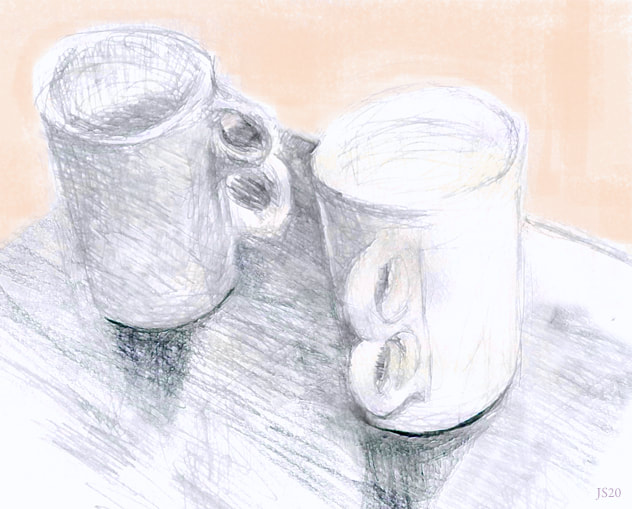
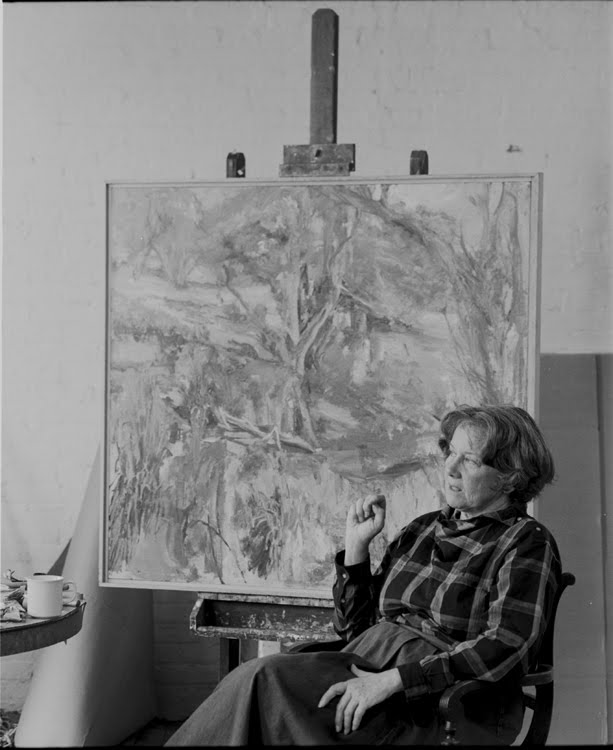
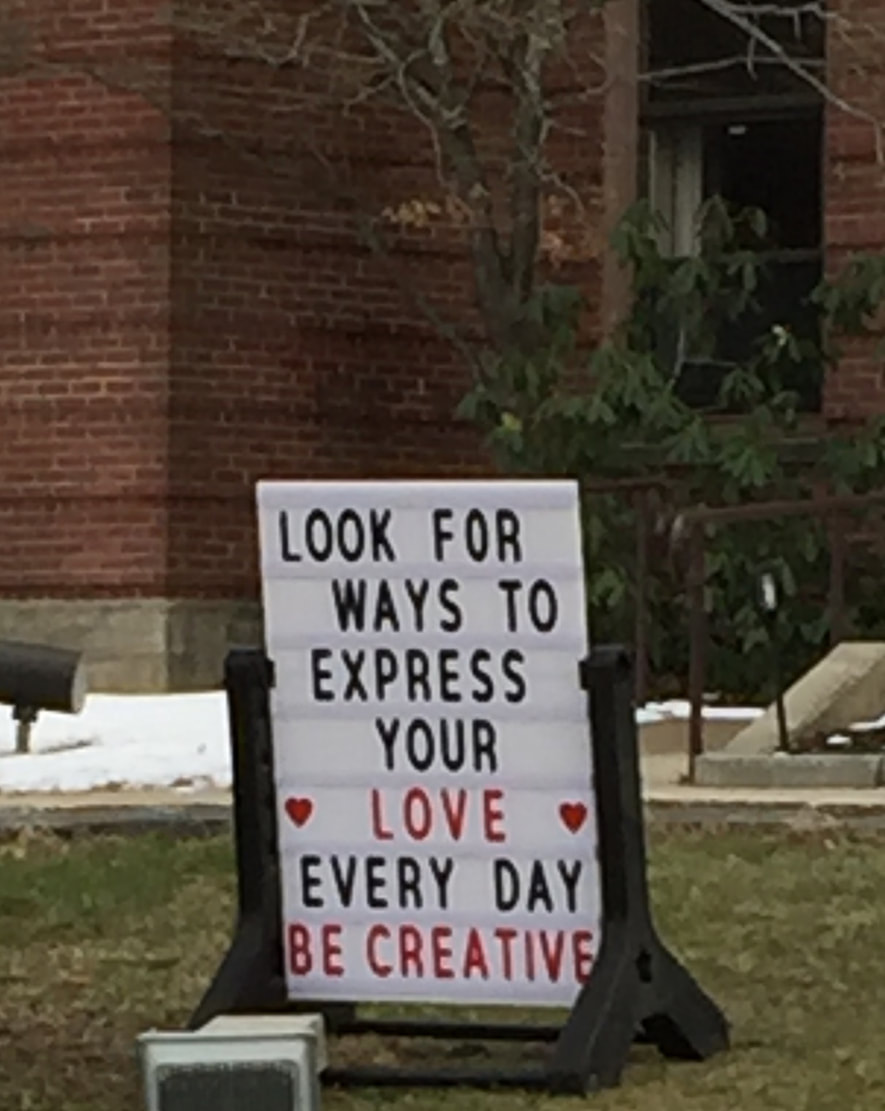
 RSS Feed
RSS Feed
